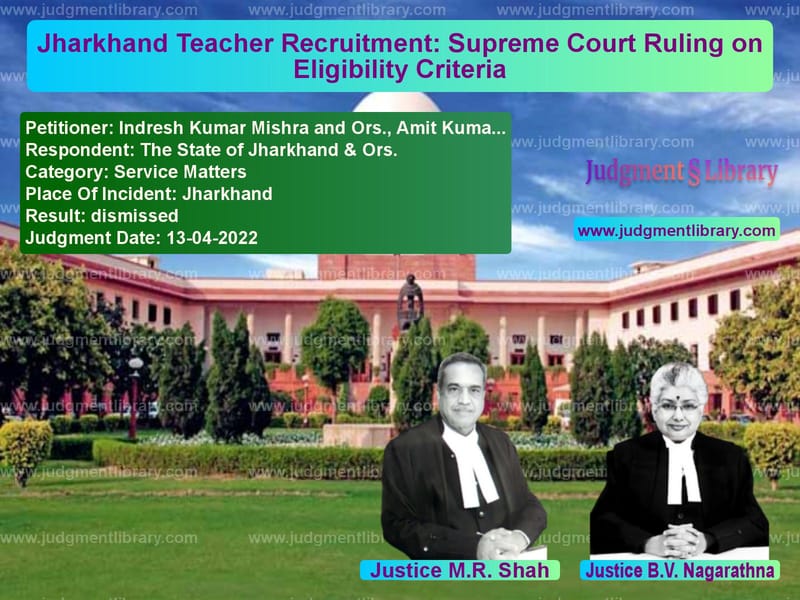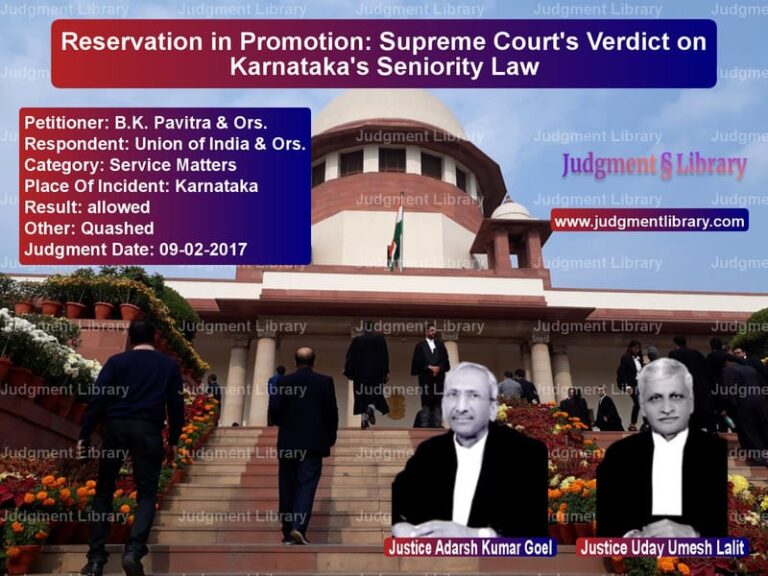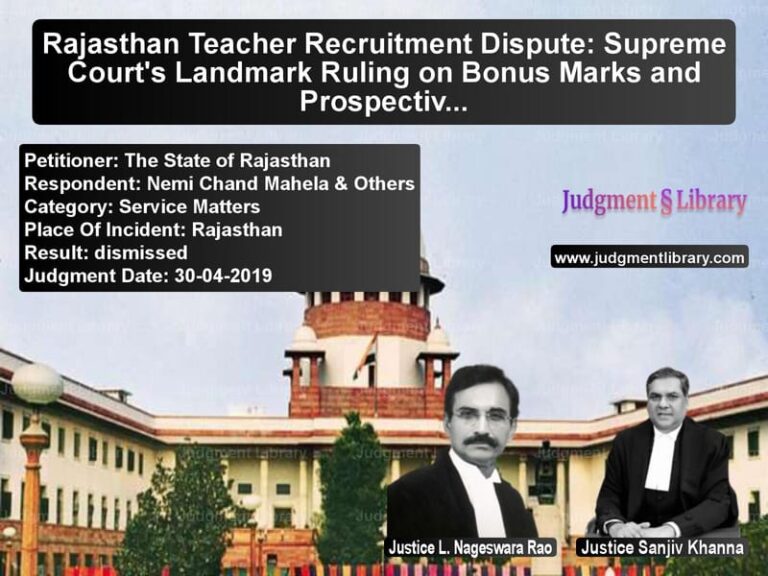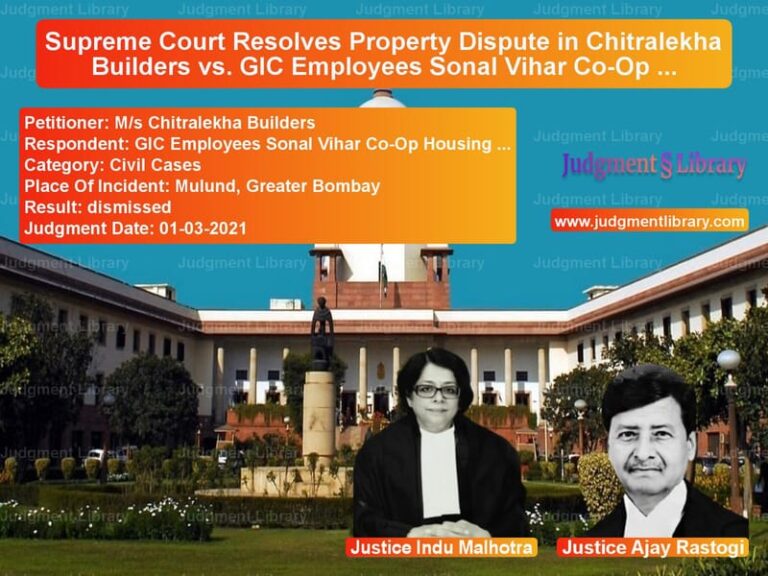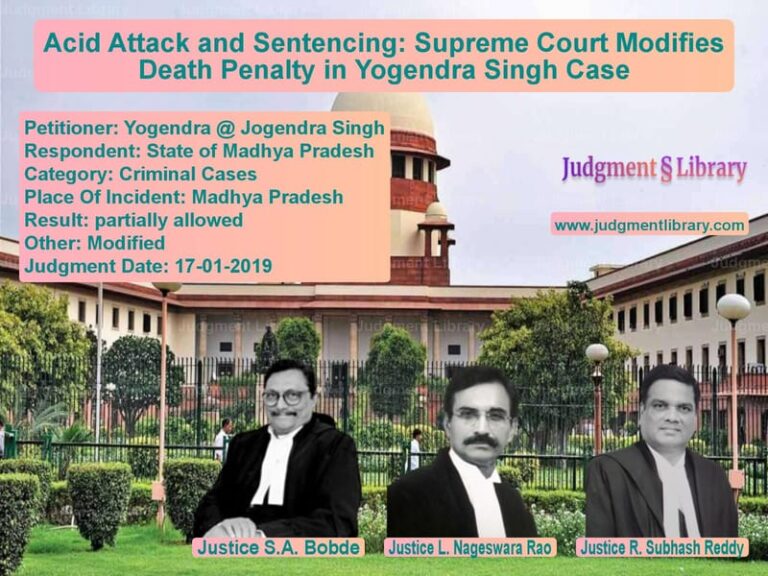Jharkhand Teacher Recruitment: Supreme Court Ruling on Eligibility Criteria
The Supreme Court of India recently delivered a significant judgment regarding the eligibility criteria for the recruitment of teachers in Jharkhand. The case involved multiple appellants, including Indresh Kumar Mishra and others, Amit Kumar Vishwakarma and others, Manish Kumar and others, and Ram Byas Pandey and others, challenging the decision of the Jharkhand Staff Selection Commission (J.S.S.C.) and the State of Jharkhand. The issue at hand was whether candidates possessing degrees in specialized branches of History, such as Ancient History, Medieval History, and Archaeology, could be considered eligible for the positions of Postgraduate Trained Teachers (P.G.T.T.) and Graduate Trained Teachers (G.T.T.).
The judgment has far-reaching implications for teacher recruitment and the interpretation of qualification criteria in government job advertisements. The Supreme Court upheld the rejection of these candidates, emphasizing that the requirement of a degree in ‘History’ as a whole was unambiguous and binding.
Background of the Case
The Jharkhand Staff Selection Commission (J.S.S.C.), following a requisition from the Department of School Education and Literacy, issued advertisements for the recruitment of teachers:
- Advertisement No. 10/2017: Invited applications for Postgraduate Trained Teachers (P.G.T.T.).
- Advertisement No. 21/2016: Invited applications for Graduate Trained Teachers (G.T.T.).
The eligibility criteria specified that candidates must possess:
- A postgraduate degree in History with at least 50% marks for P.G.T.T. applicants.
- A graduate degree in History and Political Science, with at least one subject having 45% marks for G.T.T. applicants.
The appellants participated in the recruitment process and successfully cleared the examination. However, their applications were later rejected as they possessed degrees in specific branches of History rather than a degree in History as a whole. Their appeals before the High Court were dismissed, leading them to approach the Supreme Court.
Petitioners’ Arguments
The appellants, represented by Senior Advocate Mrs. V. Mohana and Advocate Ms. Mandavi Pandey, presented the following arguments:
- The term “History” in the advertisement should be interpreted broadly, including various branches like Ancient History, Medieval History, and Archaeology.
- Their degrees were awarded by recognized universities and were considered equivalent to a History degree in many other recruitment processes.
- In previous recruitment cycles, candidates with similar qualifications were selected, establishing a precedent that should be followed in their case.
- The exclusion of candidates with specialized History degrees was arbitrary and discriminatory.
- No expert committee was formed to evaluate the eligibility of G.T.T. candidates, while a committee was formed for P.G.T.T. candidates.
- National institutions such as Kendriya Vidyalayas and other state governments accept such degrees for teacher recruitment.
Respondents’ Arguments
The respondents, including the State of Jharkhand and the J.S.S.C., presented the following counterarguments:
- The recruitment advertisements explicitly required a degree in ‘History’ as a whole and not in any specific branch.
- An expert committee reviewed the eligibility of candidates and determined that degrees in specialized branches of History did not fulfill the criteria.
- The eligibility requirements were framed in accordance with Rule 50 of the Jharkhand Appointment Rules.
- All selected candidates had degrees in History as per the advertisement’s specifications.
- Judicial intervention in recruitment policies should be limited unless there is manifest arbitrariness.
Supreme Court’s Judgment
The Supreme Court, comprising Justices M.R. Shah and B.V. Nagarathna, upheld the rejection of the petitioners and dismissed their appeals. The key observations of the Court were:
- The requirement of a degree in ‘History’ as stated in the advertisement was clear and unambiguous.
- A degree in a specialized branch of History could not be equated with a degree in History as a whole.
- Teaching History requires comprehensive knowledge of the entire subject, not just one branch.
- The recruiting authority has the right to set eligibility criteria, and courts should not interfere unless the criteria are arbitrary.
- The decisions of the High Court and the J.S.S.C. were justified and did not require intervention.
Implications of the Judgment
This ruling has significant implications for government recruitment processes and the interpretation of qualification criteria:
- Clarity in Recruitment Rules: The judgment reinforces the need for precision in job advertisements. Candidates must ensure their qualifications align exactly with the specified criteria.
- Role of Expert Committees: The ruling highlights the importance of expert committees in determining equivalency of degrees in specialized fields.
- Judicial Restraint: The Supreme Court reaffirmed that courts should not interfere with recruitment policies unless there is clear arbitrariness.
- Impacts on Future Applicants: Candidates aspiring for teaching positions in government schools must be mindful of eligibility criteria and avoid assuming that related degrees will be considered equivalent.
Conclusion
The Supreme Court’s ruling serves as a precedent for similar cases, reinforcing that eligibility criteria in government job advertisements must be strictly adhered to. It also underscores the necessity for aspirants to possess exact qualifications as prescribed, rather than relying on assumptions regarding equivalency. The judgment further validates the role of expert committees in assessing the suitability of qualifications in recruitment processes. Ultimately, this ruling will influence future recruitment policies and the way educational qualifications are interpreted in government job advertisements.
Petitioner Name: Indresh Kumar Mishra and Ors., Amit Kumar Vishwakarma and Ors., Manish Kumar and Ors., Ram Byas Pandey and Ors..Respondent Name: The State of Jharkhand & Ors..Judgment By: Justice M.R. Shah, Justice B.V. Nagarathna.Place Of Incident: Jharkhand.Judgment Date: 13-04-2022.
Don’t miss out on the full details! Download the complete judgment in PDF format below and gain valuable insights instantly!
Download Judgment: indresh-kumar-mishra-vs-the-state-of-jharkha-supreme-court-of-india-judgment-dated-13-04-2022.pdf
Directly Download Judgment: Directly download this Judgment
See all petitions in Recruitment Policies
See all petitions in Public Sector Employees
See all petitions in Employment Disputes
See all petitions in Judgment by Mukeshkumar Rasikbhai Shah
See all petitions in Judgment by B.V. Nagarathna
See all petitions in dismissed
See all petitions in supreme court of India judgments April 2022
See all petitions in 2022 judgments
See all posts in Service Matters Category
See all allowed petitions in Service Matters Category
See all Dismissed petitions in Service Matters Category
See all partially allowed petitions in Service Matters Category

